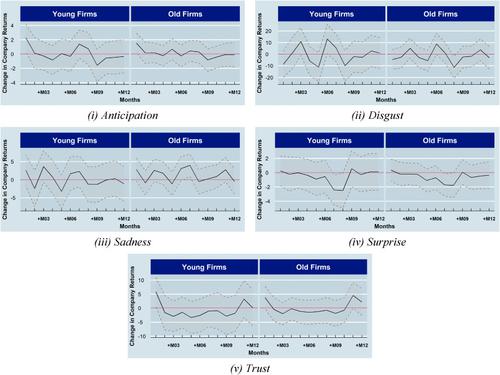当前位置:
X-MOL 学术
›
Tour. Manag.
›
论文详情
Our official English website, www.x-mol.net, welcomes your feedback! (Note: you will need to create a separate account there.)
The asymmetric impact of Twitter Sentiment and emotions: Impulse response analysis on European tourism firms using micro-data
Tourism Management ( IF 12.7 ) Pub Date : 2024-03-14 , DOI: 10.1016/j.tourman.2024.104909 Efstathios Polyzos , Anestis Fotiadis , Tzung-Cheng Huan
Tourism Management ( IF 12.7 ) Pub Date : 2024-03-14 , DOI: 10.1016/j.tourman.2024.104909 Efstathios Polyzos , Anestis Fotiadis , Tzung-Cheng Huan

|
This paper examines the characteristics that drive conflicting outcomes on the impact of Twitter data on firm returns using financial micro data. Using 314 European tourism firms as a case study and a sample of 63 million Tweets, we build sentiment and emotion (anger, fear, joy) data series and use them to compute impulse response functions for firm returns. Our results indicate that firm size and popularity are the most important firm features that explain the asymmetric impact of Twitter sentiment and of the anger emotion, while debt explains the variations in the impact of the fear emotion. We also find that the impact of the joy emotion is more evident before the COVID-19 pandemic and more muted after the outbreak. Our findings reconcile varied research on Twitter's impact on tourism industry returns and provide insights to practitioners on using Twitter to gauge online users' collective knowledge of real outcomes.
中文翻译:

Twitter 情绪和情绪的不对称影响:使用微观数据对欧洲旅游公司进行脉冲响应分析
本文使用金融微观数据研究了推特数据对公司回报影响产生冲突结果的特征。我们以 314 家欧洲旅游公司为案例研究,并以 6300 万条推文为样本,构建了情绪和情绪(愤怒、恐惧、喜悦)数据系列,并使用它们来计算公司回报的脉冲响应函数。我们的结果表明,公司规模和受欢迎程度是解释 Twitter 情绪和愤怒情绪的不对称影响的最重要的公司特征,而债务则解释了恐惧情绪影响的变化。我们还发现,喜悦情绪的影响在 COVID-19 大流行之前更加明显,而在疫情爆发之后则更加减弱。我们的研究结果协调了有关 Twitter 对旅游业回报影响的各种研究,并为从业者提供了使用 Twitter 来衡量在线用户对实际结果的集体知识的见解。
更新日期:2024-03-14
中文翻译:

Twitter 情绪和情绪的不对称影响:使用微观数据对欧洲旅游公司进行脉冲响应分析
本文使用金融微观数据研究了推特数据对公司回报影响产生冲突结果的特征。我们以 314 家欧洲旅游公司为案例研究,并以 6300 万条推文为样本,构建了情绪和情绪(愤怒、恐惧、喜悦)数据系列,并使用它们来计算公司回报的脉冲响应函数。我们的结果表明,公司规模和受欢迎程度是解释 Twitter 情绪和愤怒情绪的不对称影响的最重要的公司特征,而债务则解释了恐惧情绪影响的变化。我们还发现,喜悦情绪的影响在 COVID-19 大流行之前更加明显,而在疫情爆发之后则更加减弱。我们的研究结果协调了有关 Twitter 对旅游业回报影响的各种研究,并为从业者提供了使用 Twitter 来衡量在线用户对实际结果的集体知识的见解。



























 京公网安备 11010802027423号
京公网安备 11010802027423号